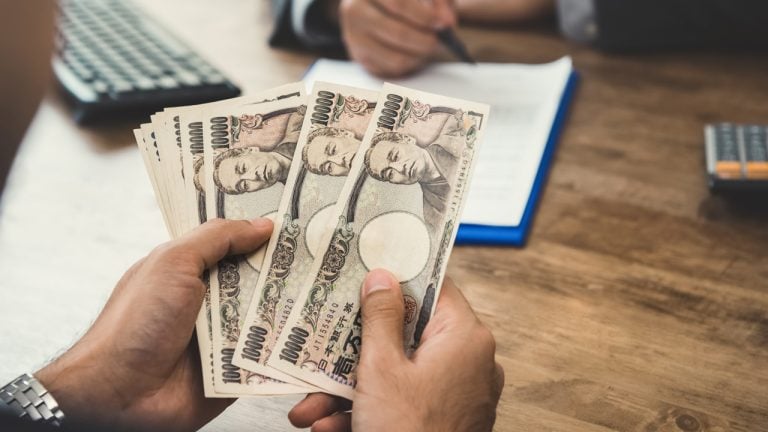
While the greenback has been rising higher, the Japanese yen tapped a 24-year low and Japan decided to intervene in foreign exchange markets (forex) for the first time since 1998. Reports say the Bank of Japan conducted the first forex intervention in 24 years, after the Japanese central bank kept its benchmark bank rate suppressed for quite some time. Following the intervention, the yen rallied as the U.S. dollar took a steep dive against the Japanese yen during Thursday’s trading sessions. However, the greenback has stepped back up to the plate and the yen’s recent gains are starting to waver.
Yen’s Struggle Causes Bank of Japan to Step Into the Buy-Side of Forex Markets for the First Time in Over 2 Decades
The U.S. dollar has been a prominent force in the world of fiat currencies and just recently the Japanese yen tapped a 24-year low which pushed the Bank of Japan to intervene. Reuters detailed on Thursday that it was the first time the Japanese central bank stepped into forex markets since 1998 to revive the falling currency. It is the first buy-side intervention since 1998 as the Bank of Japan did sell yen using physical intervention methods in 2011.
Following the intervention, the Japanese yen rallied but the JPY/USD exchange rate still shows the yen is down a great deal against the greenback during the last six months. Speaking with marketwatch.com author Steve Goldstein, Michael Hewson, the chief markets analyst at CMC Markets U.K., is questioning the yen’s long-term decline.
“The big question is whether it will make a difference and change the long-term direction of the Japanese yen’s decline,” Hewson detailed on Thursday. “The 145/146 level does appear to be a level the Bank of Japan seems keen to defend at the moment given that last week’s rate check happened around similar levels.”
Chinese Yuan, EU’s Euro, and Many Other Fiat Currencies Take a Beating from the Robust Greenback — Yen’s Intervention Gains Start to Erode
The yen is not the only fiat currency struggling as the Chinese yuan has continued to depreciate against the greenback. After reaching parity with the U.S. dollar again this week, the European Union’s euro is now at $0.98 against the U.S. dollar at the time of writing.
Masato Kanda, Japan’s vice finance minister for international affairs, explained that the yen’s recent 24-year drop made it so officials “have taken decisive action in the exchange market.” At the time of writing, the U.S. dollar index chart (DXY) has skyrocketed to 111.448 and the yen’s gains during the morning trading sessions (ET) are slowly being erased. In addition to a large handful of fiat currencies, crypto assets, precious metals, and equities are taking a beating from the U.S. dollar as well on Thursday afternoon (ET).
What do you think about the Japanese yen sliding to a 24-year low and the Bank of Japan stepping in to fix the situation via forex markets? Let us know what you think about this subject in the comments section below.

Post a Comment